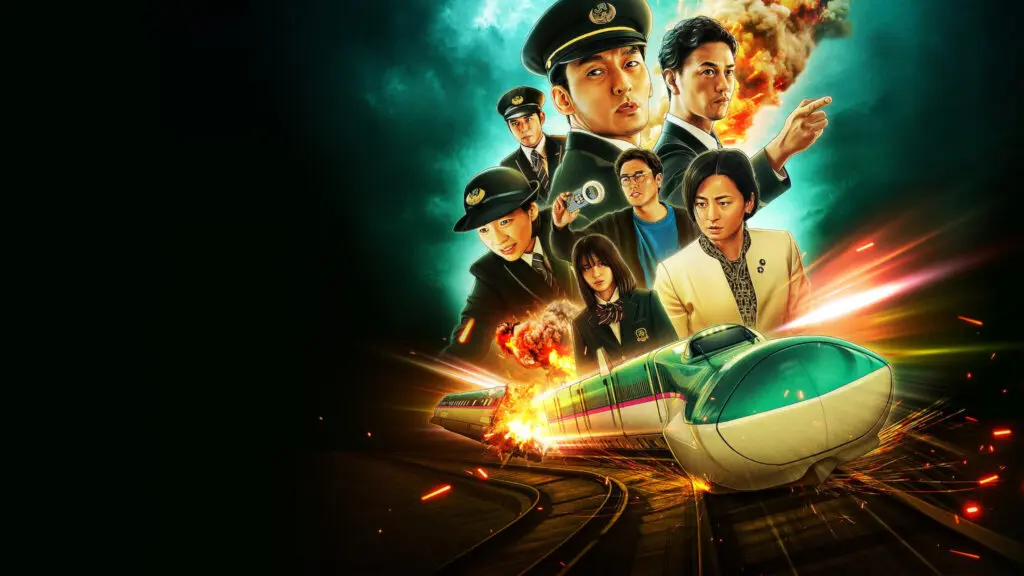
Let’s just clear up any confusion. Bullet Train Explosion is nothing to do with David Leitch’s demented 2022 action-comedy Bullet Train, though it would perhaps be better if it was. It’s actually a remake of the Japanese film from 1975 that inspired the 1994 classic Speed, which you’ll recall was about Sandra Bullock being forced by an extortionist to keep a city bus above 50 mph. It was a lean, mean thriller full of excitement and relentless kinetic energy. Bullet Train Explosion is not.
You can pinpoint pretty exactly what went wrong here – the runtime. There are other issues, granted, but this is the main one, the soggy centre that weakens all the death-defying high-stakes problem-solving surrounding it. I don’t love that the concept involves a train rather than a bus, either, because it’s much more hair-raising to navigate unpredictable roads at high speed than a predetermined track, but this wasn’t a problem for the original, so I’m loath to make it the main one here.
But there’s no reason this movie should be almost two and a half hours long. The concept is fuelled by speed, but the screenplay has none, and what should be a tight and contained thriller becomes a sluggish journey spread thinly across a too-large ensemble. It looks like a modernization and has the required contemporary flourishes – like an influencer character – but feels like several steps back overall, a fundamental misunderstanding about how and why this kind of thing works.

Plot-wise, the setup is recognisable. A passenger train on its way to Tokyo is informed by a voice-modulated terrorist that there are several bombs on board that will explode if the locomotive drops below 100 kmph. Cue panic, ranging from the passengers and professionals on board to the company men at East Japan Railway Company HQ and slimy government officials. Structurally, Bullet Train Explosion is at least reminiscent of director Shinji Higuchi’s Shin Godzilla in how it flits elastically between boots-on-the-ground thrills and more sedate conversations and plans in offices and stations away from the action. But the comparison doesn’t do the Netflix movie any favours since there isn’t a great deal of enjoyment in the minute logistics of train operation. The vibe that’s trying to be emulated here, I think, is that of Ridley Scott’s The Martian, which was also about inter-agency maker-nerd teamwork winning the day, but this is, again, a comparison that doesn’t do any favours for Bullet Train Explosion.
The perspectives are varied, at least, but most of the characters who get the bulk of screentime are broad archetypes or a talking plot function. There’s the unflappable conductor, Kazuya Takaichi (Tsuyoshi Kusanagi), and the driver Chika Matsumoto (Non), both of whom are necessary to keep the train running. And then there are passengers ranging from the aforementioned influencer (Jun Kaname) to a politician, schoolchildren, and a couple of wrong-’uns, all present to introduce varying degrees of peril, conflict, and humanity as and when required. It’s the same off-train, but arguably worse, because there’s a distinct underlying feeling of the day being saved too easily, with too little friction and jeopardy, which decreases the tension elsewhere.
And this is a shame since Bullet Train Explosion is good for a set-piece or two, and how these come together tends to work quite well, with frantic planning around a particular problem leading to an ad-hoc solution being implemented on the train itself, often by people who have no idea what they’re doing. There’s a fun tension in both phases and the interplay between the different factions makes sense here, even if the balance is never quite right – there’s always slightly too much planning, or too little resistance, and you never really get the sense than the train might bounce off the tracks and kill everyone. But it’s undeniable that this is a better movie about logistics than it is about morality, human ingenuity and cooperation, or any other capital-T themes that might be lurking in the margins of Kazuhiro Nakagawa and Norichika Ôba’s screenplay. This is a movie about a train that works best when it’s very tightly focused on that train’s journey. Unfortunately, focus is what it lacks most.


